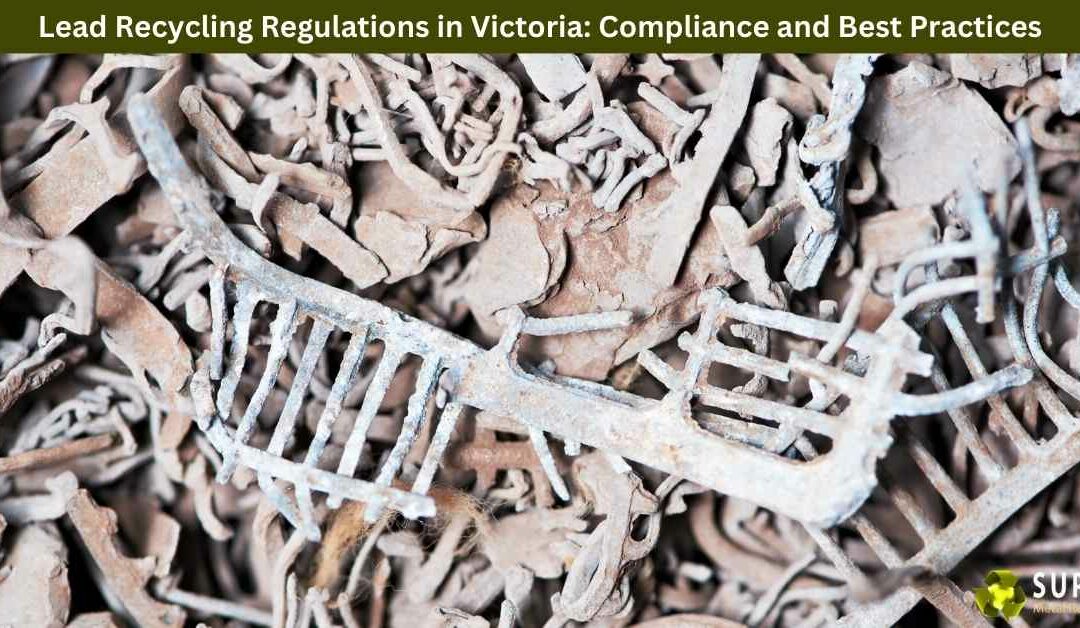Lead is a versatile metal with various industrial applications, but its improper disposal can pose serious health and environmental risks. To mitigate these risks, Victoria has implemented stringent regulations governing the recycling and disposal of lead-containing materials. In this article, we explore the lead recycling regulations in Victoria, emphasizing the importance of compliance and outlining best practices for businesses and individuals involved in lead recycling.
Understanding Lead Recycling Regulations in Victoria
Victoria’s lead recycling regulations aim to protect public health and the environment by ensuring that lead-containing materials are managed responsibly throughout their lifecycle. Key aspects of these regulations include:
- Licensing Requirements: Any business involved in the recycling or disposal of lead must obtain the necessary licenses and permits from relevant regulatory authorities, such as the Environment Protection Authority (EPA) Victoria. These licenses specify the activities permitted, compliance obligations, and reporting requirements.
- Handling and Storage Guidelines: Victoria’s regulations prescribe specific guidelines for the handling, storage, and transportation of lead-containing materials. This includes measures to prevent lead dust contamination, secure storage facilities, and proper labeling of hazardous materials.
- Emission Standards: Facilities that process lead-containing materials are subject to strict emission standards to control air pollution. This may involve installing pollution control devices, monitoring air quality, and conducting regular emissions testing to ensure compliance with regulatory limits.
- Waste Management Protocols: Lead waste generated during recycling activities must be managed according to Victoria’s waste classification and disposal regulations. This may involve segregating lead waste from other materials, using approved waste containers, and arranging for proper disposal at licensed facilities.
- Reporting and Recordkeeping: Businesses involved in lead recycling are required to maintain detailed records of their activities, including quantities of lead received, processed, and disposed of. Regular reporting to regulatory authorities is necessary to demonstrate compliance with licensing conditions and regulatory requirements.
Best Practices for Lead Recycling Compliance
To ensure compliance with Victoria’s lead recycling regulations and promote best practices in the industry, businesses and individuals should adhere to the following guidelines:
- Training and Education: Provide comprehensive training to employees involved in lead recycling activities, covering proper handling techniques, safety protocols, and regulatory requirements. Regular refresher training sessions should be conducted to reinforce compliance awareness.
- Hazard Identification and Risk Assessment: Conduct thorough hazard identification and risk assessments to identify potential sources of lead exposure and implement appropriate control measures. This may include installing ventilation systems, providing personal protective equipment (PPE), and implementing engineering controls to minimize lead dust emissions.
- Environmental Monitoring: Implement a robust environmental monitoring program to assess air and water quality, soil contamination, and other potential environmental impacts associated with lead recycling activities. Regular monitoring helps identify any deviations from regulatory standards and facilitates prompt corrective action.
- Waste Minimization and Recycling: Implement measures to minimize lead waste generation through process optimization, material substitution, and recycling initiatives. Where feasible, explore opportunities to recycle lead-containing materials to reduce the need for virgin resources and minimize environmental impact.
- Collaboration and Engagement: Foster collaboration with regulatory authorities, industry associations, and other stakeholders to stay informed about regulatory updates, industry trends, and best practices in lead recycling. Participate in industry forums, workshops, and working groups to share knowledge and expertise and contribute to continuous improvement efforts.
Compliance with lead recycling regulations is essential to protect public health and the environment in Victoria. By understanding and adhering to regulatory requirements, businesses can minimize the risks associated with lead recycling activities and demonstrate their commitment to environmental stewardship. By implementing best practices and fostering a culture of compliance, Victoria can ensure that lead recycling contributes to sustainable development while safeguarding the well-being of communities and ecosystems for generations to come.
If you are in Glen Waverley, Victoria 3150, and looking for a metal recycling service, this is the best way to visit us.
Super Metal Recycling
345 Frankston – Dandenong Road, Dandenong South VIC 3175
(03) 9706 4909


Recent Comments